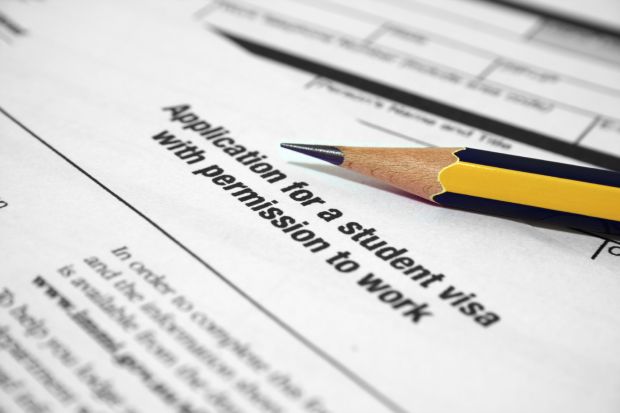Australia’s government has announced a long-awaited visa flexibility package for international students, in a rare piece of good news for an industry reeling from a second wave of coronavirus infections.
Canberra has pledged to again start processing and granting visa applications lodged outside Australia so that students already have their visas when borders reopen. The government will also give applicants extra time to demonstrate their English skills if Covid-19 has disrupted access to language tests.
The changes also include free visa extensions for students whose courses have been interrupted by the pandemic. And the government has clarified eligibility rules for post-study work rights, so that current student visa holders can qualify on the strength of online study undertaken overseas – even if they are unable to return to Australia before graduating.
“These measures back the international education sector – our fourth largest export sector – and will assist its recovery,” said human services minister Alan Tudge. “Doing so will…also have flow-on effects for many local communities and businesses, including accommodation services, tourism, hospitality and retail.”
The measures, which have been expected for some weeks, come after a resurgence of the coronavirus in Melbourne and south-western Sydney scuttled plans to fly in thousands of foreign students on a trial basis. The downturn in international enrolments is the major contributor to the revenue shortfall afflicting Australia’s universities, which has been estimated at up to A$5 billion (£2.8 billion) this year alone.
The International Education Association of Australia said that the measures would benefit students in Australia as well as those stranded offshore. Until now, those forced to reapply for visas to complete studies thwarted by the pandemic have faced charges of up to A$600.
CEO Phil Honeywood commended the fee waivers on compassionate grounds. “However, the devil is still in the detail on some of these announcements – particularly the post-study work rights visa eligibility criteria,” he said. A key issue still to be clarified is the date when the new criteria take effect.
Education minister Dan Tehan said that the new arrangements would give international students confidence in their visa arrangements “so they can make plans to study in Australia when it is safe to do so”.
“Our efforts in controlling the spread of the virus mean we can begin to welcome back international students in a Covid-safe way once state borders reopen and face-to-face learning resumes,” he said.
University of Technology Sydney deputy vice-chancellor Iain Watt said that once that happened, the benefits of international education would again flow to the broader community.
He said that the industry delivered the country some A$100 million every day, and that every three extra onshore international students translated to an additional local job.
“These changes show that the government understands what we need to be competitive with other international education destination countries, and is prepared to take action,” Mr Watt said. But he expressed reservations about the limiting of the relaxed post-study work rights criteria to students who already had visas.
Survey results suggest that international students see Australia and its neighbour New Zealand as safe places to study because of both countries’ success in containing the spread of Covid-19. But industry figures worry that this competitive advantage is being eroded as northern hemisphere competitor countries allow students in, notwithstanding their greater Covid caseload.
Register to continue
Why register?
- Registration is free and only takes a moment
- Once registered, you can read 3 articles a month
- Sign up for our newsletter
Subscribe
Or subscribe for unlimited access to:
- Unlimited access to news, views, insights & reviews
- Digital editions
- Digital access to THE’s university and college rankings analysis
Already registered or a current subscriber?










